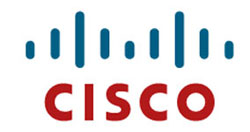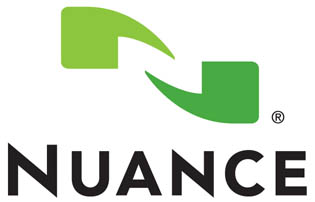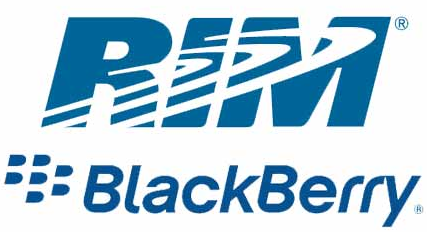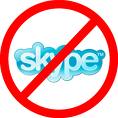 eBay issued a letter to its customers saying that it was removing the Skype-based click-to-chat or click-to-talk buttons from their listings, effective June 10. EBay’s management cites “limited buyer and seller usage”. But it is more likely that the company, which derives significant revenue by taking a percentage of the value of transactions carried out through its resources, had no incentive to encourage interactions, and the subsequent transactions, to be carried out over a synchronous voice or text-chat conversations.
eBay issued a letter to its customers saying that it was removing the Skype-based click-to-chat or click-to-talk buttons from their listings, effective June 10. EBay’s management cites “limited buyer and seller usage”. But it is more likely that the company, which derives significant revenue by taking a percentage of the value of transactions carried out through its resources, had no incentive to encourage interactions, and the subsequent transactions, to be carried out over a synchronous voice or text-chat conversations.
Articles
Study Finds Consumers Leery of Current ID Proofing Techniques

A comprehensive study into consumer perceptions and attitudes in Australia and New Zealand has found increasing concern that current forms of identity verification, such as PINs and passwords, are less than adequate security measures in preventing identity theft. In an online survey of more than 400 consumers, callcentres.net found 67% of respondents were “very or mostly concerned” about identity theft compared to 63% a year ago.
And while high-profile security breaches and subsequent media coverage may fuel this public concern, the study, sponsored by Salmat VeCommerce, found 37% of Australians (and 22% of New Zealanders) have directly experienced, or know a friend or family member to have experienced, identity fraud or theft.
Additionally, consumers are increasingly uneasy that PINs and password could be guessed or otherwise compromised leading to stolen information and possible theft. According to Laurence Jackson, research manager with callcentres.net, the ever-growing number of PINs and passwords is adding to the uneasiness.
“There is considerable frustration among consumers at having to remember multiple PINs and passwords when dealing the various organizations,” says Jackson. The study found that 70% Australian consumers have more than 4 active PINs or passwords and account for some 63 million total.
Underscoring consumers’ caution towards the more traditional methods of identity verification, the study found voice biometrics as the preferred method of identification processes (45%), followed by PIN (21%), password (18%) and personal details or history questions (16%). To provide a clear understanding of how a biometric identification process works, Jackson said the respondents were each given a brief demo of the technology and then asked whether they would use it.
Still, some of the data presented in the study signals that consumers’ perceptions of identification technologies remains conflicted at best. For example, asked when an organization uses more technology, “I feel my personal information is secure” some 33% of consumers “strongly or mostly” disagreed compared to 26% in 2008. And when asked “how simple or complex a process you would ideally like organizations to use when identifying you,” 75% of Australians wanted a “very or fairly” complex security process, up from 64% the year before.
Jackson says these contradictions are perception realities and reflect a need for technology providers to better educate consumers, as well as pointing “in a good direction toward future technologies, like biometrics.”
Cisco’s New Unified Service Delivery for Service Providers
 In a move designed to make it easier for network operators to support cloud computing, Cisco launched a new Unified Service Delivery package that includes the Cisco Unified Computing System (UCS), a data center-optimized version of CRS-1 (its flagship Carrier Routing System) and the Cisco Nexus 7000 data switch. The CRS-1 integrates two 10Gb modules and a 40Gb forwarding processor in order to support service providers’ ability to deliver resource and network intensive video and data services directly fropm from their data centers.
In a move designed to make it easier for network operators to support cloud computing, Cisco launched a new Unified Service Delivery package that includes the Cisco Unified Computing System (UCS), a data center-optimized version of CRS-1 (its flagship Carrier Routing System) and the Cisco Nexus 7000 data switch. The CRS-1 integrates two 10Gb modules and a 40Gb forwarding processor in order to support service providers’ ability to deliver resource and network intensive video and data services directly fropm from their data centers.
Voxeo Expands European Presence
 In what it terms a “million Euro investment”, Voxeo has increased its capacity in Europe to over 10,000 ports of VoiceXML and CCXML conformant voice self-service resources.
In what it terms a “million Euro investment”, Voxeo has increased its capacity in Europe to over 10,000 ports of VoiceXML and CCXML conformant voice self-service resources.
Nuance Announces First Grads from Technical Certification Program
 Nuance recently announced that Avaya, Genesys, Intervoice/Convergys, Holly Connects and SwampFox had employees who were among the first graduates of a new technical certification program offered by Nuance Speech University. Certification indicates proficiency in a number of areas designed to give enterprise customers confidence that their vendors or integrators will be putting Nuance technology to best use on their callers’ behalf.
Nuance recently announced that Avaya, Genesys, Intervoice/Convergys, Holly Connects and SwampFox had employees who were among the first graduates of a new technical certification program offered by Nuance Speech University. Certification indicates proficiency in a number of areas designed to give enterprise customers confidence that their vendors or integrators will be putting Nuance technology to best use on their callers’ behalf.
Convergys Formally Launches On Demand Voice Authentication
After tantalizing attendees at Bill Meisel’s Voice Search Conference in San Diego, “relationship management” specialist Convergys Corporation formally announced an “on demand voice authentication solution” that integrates Trade Harbor’s Voice Signature Service into its call flow.
RIM Integrates Mobile Voice Server with Cisco UC
Recombinant Telephony fans should take note of a deep integration between RIM’s Mobile Voice Server (MVS) with Cisco’s Unified Communications Manager (UCM) software. The result, which will be generally available in the third quarter of this year, is a enterprise services platform capable of delivering many of the features of the vaunted Google Voice offering as well as call management software from other enterprise infrastructure providers like Alcatel-Lucent’s Rich Communications Manager and Microsoft’s Office Communications Server 2007 R2 (OCS2007 R2).
RedStart Systems Utter Command Enhances Dragon NaturallySpeaking
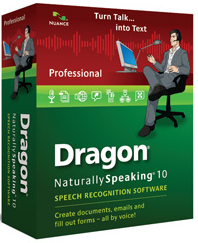 I’ve found Twitter to be a great mechanism for staying up to date on my friends opinions of new products. Today Moshe Yudkowsky “tweeted” that “Redstart has one of the more impressive speech recognition-based systems to control a PC.” So I had to take a look.
I’ve found Twitter to be a great mechanism for staying up to date on my friends opinions of new products. Today Moshe Yudkowsky “tweeted” that “Redstart has one of the more impressive speech recognition-based systems to control a PC.” So I had to take a look.
A Rim Shot For Yap: A New SDK for the Blackberry
Yap Inc., a firm that specializes speech-enabling mobile applications, used Rim’s Wireless Enterprise Symposium (WES 2009) to release a new software development kit (SDK) and announce the launch of a formal partnership program. It also took the opportunity to showcase… Read More ›
Disaggregation’s Destiny: Recombinant Telephony
Webinar: Cisco’s Mike Bergelson will join Dan Miller and Orange Lab’s Mark Plakias in a webcast, “Recombinant Telephony: Voices from the Cloud” on Wednesday, May 13th (10AM Pacific/1PM Eastern). Held in conjunction with BrightTalk, Click here to register.
In November 2005, in a book entitled “The Pebble and The Avalanche” Moshe Yudkowsky, a physicist who now serves as Chair of the Midwest Speech Technologies Association laid out the tenets of the concept he calls “disaggregation.” Using examples like the growth of the Internet, the introduction of the personal computer and breakup of AT&T, he describes how innovation results when energy is released in busting big things into smaller, more flexible or agile pieces.
He’s right, of course, and the breaking up of monolithic companies, IT infrastructure or political systems releases levels of creative energy that fuel revolution and results in the positive disruption of current practices. Yudkowsky’s era of disaggregation coincides with the Internet-era’s prevailing trend toward “disintermediation.” This “double dis” has resulted in Internet-based communications patterns and Web-based marketplaces where “peer-to-peer” communications put prospective buyers into direct conversations with the people or businesses offering the goods or services that they seek.
Ironically, the era of disintermediation and disaggregation has created a market for new intermediaries and integrators. These are the folks that help put all the pieces back together in new, truly useful ways through a process I’m calling “recombinance.” The result is “recombinant telephony” and it is tightly connected to some major trends and memes like unified communications, collaboration and conversational access.
Reassembly = Recombinance
The word “recombinant” is most closely associated with “DNA,” describing the biochemical bi-product of gene-splicing or the repairing of pieces of DNA as part of genetic engineering. In a way, this scientific method of “recombinance” has become manifest in the second generation of Web services (Web 2.0) where adding a dash of “collective intelligence” with Web infrastructure and easy-to-use development tools or programming languages has led to the rapid development and introduction of new services and modes of communications and eventually business plans.
Twitter, of course, is the most recent example – an immediate message-handling service built loosely on the pieces of SMS, Web services, an online registry and a blogging infrastructure. It has been the inspiration to new modes of search, discovery, customer care and support (with hooks into SalesForce.com’s CloudForce), information dissemination and general entertainment. And as creative Twitter-types develop a set of rich applications that link Twitterers to software and Internet-based services that help them find and interact with other people (or businesses) independent of time, distance and barriers, Twitter can eventually become the dominant mode of communications and commerce for an attention-deprived generation What’s more, this communication will cross all national borders, corporate firewalls and networking constraints.
Recombinance Brings Creativity and Agility to Telecom App Development
Recombinant telephony transcends talk of unified communications and traditional contact center management methodology. In the recombinant world, customer care professionals (or volunteers) can be in their homes or on mobile devices in local coffee shops. From virtually anywhere they can monitor and reply to activity across a number of channels – email, SMS text, websites, blogs and microblogs (meaning all those tweets on Twitter).
The magic is in a well-understood API designed to give third-party developers the tools and hooks into the broadband Internet to fiercely encourage rapid-fire innovation. To point, at eComm2009, held in the Bay Area in March, a number of firms, including IfByPhone, Voxeo, Jaduka, Ribbit (now owned by BT) and Adhearsion showed off their API-support of the developer community. They distribute SDKs with sample code, hold tutorials and fund “BarCamps” or coding sessions that yield very interesting mash-ups like phone-based access to Twitter or speech-enabling Yahoo! Local.
The end-products may sometimes underwhelm, but the speed at which new applications and services are developed, tested, deployed or discarded under the new regimen is stunning. The new architectures and support infrastructures have caught the attention of incumbent carriers and infrastructure providers. BT’s purchase of Ribbit (for US$105 million) is but one example of the value that established network operators see in adding the energy and efforts of aggressive innovators to their resource mix.
Our Menus Have Changed … Really!
The pebble has been dropped. Proprietary systems have been both cracked and benignly hacked. A library of reusable programming elements grows and grows, and, in many cases, it is there to be shared in collaborative efforts. In other cases, the inner workings of systems are exposed for use by all (developers and end-users alike). A dramatic example is Fonolo.com, a company that paid its employees to “power dial” though the IVR systems of scores of big companies so they could map all the branches in each menu. Fonolo.com’s disaggregation efforts now allow customers to select exactly where they want to join a phone conversation with a particular company. No queues, no waiting.
What if companies voluntarily “published” their IVR interactions and made them available to Fonolo.com? The result would be shorter queue times (which equates to lower telecom costs), happier customers and more accurate renderings of the “site navigation” – which is especially important in the rare cases that “our menus have changed” is a true statement.
Recombination is inevitable. Economic and technological imperatives have blown the speech processing, call processing and application processing worlds apart. Creative forces are compelling developers to put them back together in new ways. The results, when we indeed come out of this bad economy, are bound to be beneficial.

